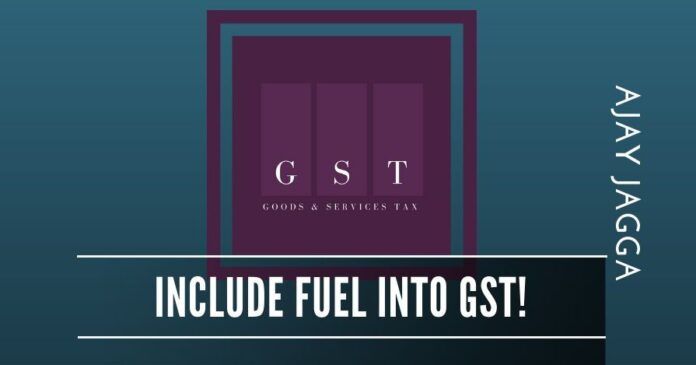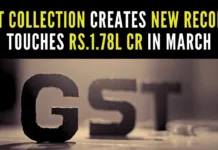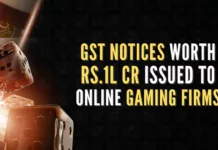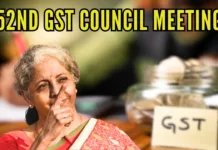
Collecting more taxes than absolutely necessary is exploitation and unconstitutional. It is a depressing but true fact, that the fuel is yet not brought under the Goods and Services Tax (GST) despite the fact that as per the original ‘The One Hundred and Twenty Second Amendment Bill of the Constitution of India’ officially known as The Constitution (One Hundred and First Amendment) Act, 2016, introduced as the national Goods and Services Tax in India from 1 July 2017, fuel is part of GST.
The concept of GST was created in the year 2000 and it took almost 16 years to make it a reality. The main argument supporting the introduction of GST in India was that we have multiple taxes in India and the high prices are the result of levy of these multiple taxes and that too with the levy of tax on tax. It was promoted and argued by the Central Governments be it the UPA or the current NDA, that if we being GST in India then the inflation can be controlled easily and the sky-high prices will come down, especially the fuel prices. The surging prices of fuel have crushed the common people.
| Table 1. How Fuel is getting taxed and its price if it is part of GST | |||
| Action | Items | Present regime | GST Regime |
| Basic fuel Price | 33.00 (app) | 33.00 (app) | |
| Add | Cost of operation/land/entry/freight etc @16% app | 5.26 | 5.26 |
| Add | Excise Duty @51+% | 19.51 | NIL |
| Total | 57.77 | 38.26 | |
| Add | Commission of Petrol Pump Dealers @6+% | 3.46 | 2.29 |
| Total | 61.23 | 40.55 | |
| Add | VAT (state to state) avg app @27% | 16.53 | NIL |
| Add | GST say 28% | NIL | 11.35 |
| Retail Price to consumer | 77.76 | 51.91 | |
The above calculation has been made with the highest rate of GST(28%).
So in a nutshell, the basic thing to understand for a common man is that at present main two tax components are being levied i.e. Excise and VAT and if one goes under GST, only GST will be charged. The merger of all taxes was/ is the mantra of GST to control inflation of the country, as far as tax impacts are concerned. The other noticeable point is the dealer’s commission, which also fluctuates, is reduced under the GST regime. So there are two beneficiaries of the present pricing system i.e. Government of India and the Petrol Pump Dealers (Oil companies; as they are also running many petrol pumps known as COCO i.e. Company Owned Company Operated). So one can easily understand that in this system the trio i.e. Central Government, Oil Companies, and Petrol Pump Dealers are beneficiaries of high prices whereas the consumers are the losers and are suffering continuously. And if fuel comes under the GST regime then all the three will lose and the consumers will get relief. So as a whole the ‘trio’ is ruling and controlling this whole affair and are not asking for bringing fuel under the GST. Apart from direct cost, the indirect cost of freight/ transportation will also go down and that will bring the prices down. Imagine all items vegetables/ grocery etc having a higher component of freight, once the prices of fuel go down, freight will go down and this will bring down the prices.
Now, we need to understand how to bring petroleum products under Goods and Service Tax (GST). The whole process of bringing fuel under GST is convening of the GST Council meeting, which can be convened through an email notice to all the States/ Union Territories (UT). The Union Finance Minister is the chairman of the GST council, which is presently Mr. Arun Jaitley. In the meeting there needs to be unanimity or majority in support of the agenda i. e. bring fuel under the GST. Once that is done, a resolution is to be passed, which is normally kept ready in advance. So let the GST Chairman call and convene a meeting of the GST council, on this very important agenda in the larger public interest. And let the proceedings be live on TV, where people can watch, as to what is happening on the issue of their interest. Let anyone dare to oppose this and let the obstructers be exposed.
The time has come to stop the mulching of public through fuel tax policy. Hon’ble Prime Minister should come forward and issue the necessary instructions in this regard. The ruling NDA alliance can show how a simple meeting and resolution can bring much-needed relief in the country. The mounting of Non Performing assets (NPAs) versus deferring the date of bringing fuel under GST, seems to be a bad financial strategy. A common man certainly feels that perhaps by keeping the fuel out of GST, the Government is making up the losses of mounting NPAs. Further, no one can understand the cause of delay in bringing fuel under the GST. Except for the lone and logical voice of a Rajya Sabha M.P. Dr. Subramanian Swamy, a world-renowned economist, who has stated on a public platform that anything over Rs. 48 per liter for petrol is exploitation. The Revenue Authorities must understand that a nation cannot tax business because business doesn’t pay taxes, it collects taxes from the people and pays to the government, after using it for self-purposes. It is the people, who are taxed. The famous quote fully fits here i.e. “We contend that for a nation to try to tax itself into prosperity is like a man standing in a bucket and trying to lift himself up by the handle.”
Note:
1. The views expressed here are those of the author and do not necessarily represent or reflect the views of PGurus.
- Mounting NPAs and keeping fuel outside GST is a bad financial strategy - September 4, 2018
- Flood relief for Kerala through GST - August 23, 2018
- Trafficking cultural property of India - June 8, 2018











Is’t this govt had time to implement SC/ST act immediately after SC verdict? why it cannot say, we are just following court orders?
Is’t this govt done with Article 35A by cabinet?
Is’t this govt decided on Rahul’s foreign citizenship?
Pack this loudmouths to Guj and let new leader emerge for BJP!! or from RSS….
I support that fuels must be brought under GST.
But, one common thing that is missing from every article that the fuel price would come down drastically if they are brought under GST is the blind assumption that it would be taxed in 28% slab.
But, what if a new higher tax slab is introduced in GST. Nothing stops the GST council from doing so.
Or else, what if the Central Govt puts cess on fuels after taxing them at 28%?
Blind notion that fuel prices would come down and peddling some articles is not acceptable.
The other part is, how the Govt is going to mop up finances for the ones that is going to loose, if we go by the notion of 28% GST?
How is the fiscal deficit going to be managed?
How is the inflation increase that would be as a result of increased fiscal deficit going to be managed?
Again, it is going to hit the common man, through higher interest rates, contraction of economy, job losses, etc.
The solution should be to address all. Not just some shortsighted one in the name of reducing the fuel prices and just looking one side of the story.
A half truth which hides more than what it reveals.Are State Govts. also not looters in the tax bonanza on petrol&diesel?Also bringing Petroleum products under GST requires a constitutional amendment.Will the opposition goons vote for the amendment?
I wonder if the inclusion of fuel under GST will be kept for pre-election declaration. This could have two benefits:
1) Reduce fuel price at a time when fickle public remembers it and votes in relief
2) Allow govt. to fill up on tax till that point which could be an asset for coming term.
There is a grave factual error in the price break up table which amounts to distortion of facts and misleading the public.Nearly half of the taxes/levies collected in the present system goes to State Govt.ments.Why then the GOI is shown as the loan villain?Please issue a corrigendum for the sake of good order and honesty in reporting.If State Govts. are not partners in loot will they not revolt against the Centre demanding petrol/diesel under GST.Incidentally is the error inadvertent or mischeivous.
Nice article. Solved the riddle in my mind. The government seems to be keeping this as a trump card for election duty. If crude shoots up, the government will hasten the move towards GST thereby keeping the price at the pump low.
Thanks.
Theory !
That too incorrect !!!
Tax money DOESN’T go ONLY to CG.
SGs ALSO earn from VAT.
R U UNAWARE that
The ONLY hurdle in bringing Fuel under GST is Unwillingness of STATE GOVERNMENTS.
It is State’s Finances that would be affected highly.
Do your homework to see impact.
This lopsided approach Not expected from SANE PROFESSIONAL.
There is a GST compensation law, which protects the states against any loss from implementation of GST, so SG will remain protected. Loser will be CG, but Consumer will get relief
In that case why can’t the SG ask for including fuels in GST? Anyhow they are going to be compensated for the losses know. The SG are the problem creators. You are putting the blame on CG. If you have the courage write to the State Governments to call for a Central Council meeting exclusively on inclusion of Petroleum products under GST.
psu banks are functioning under the mercy of government, hence politician involved in major fund loans to various influential persons/sector,getting kick backs ,commissions,deviation/violation of value assessment, false documentation acceptense etc .
Bank officials also join hands with industrialist/real estate business/infrastructure loan disbursement. Etc.
Finally common man indirectly suffer.
All the banks made profit not by doing businesses,
By recovering the poor man account saying minimum balance not maintained.
Shame on the part rib.
Just think a man who can’t maintain the balance is an indication of the poverty level he is operating.
Because huge distribution problem in our country.
1%of the population having the 73%national wealth.latest report.
Status of banks will not improve by reviving or injecting money.or by wave of the npa. Psu banks are acting ATM for government and politicians.
Privatizing psu is that one and only solution for all the problems.
All bad loans of less than 12 crores which has been there for over 14 years should be written off or halved and given a one time settlement . Please note that collateral valuation of assets in rural areas have plummeted by over 40%. No use banks holding to it. Give the lender one year time to hive off at least a few properties
All bad loans of less than 12 crores which has been there for over 14 years should be written off or halved and given a one time settlement